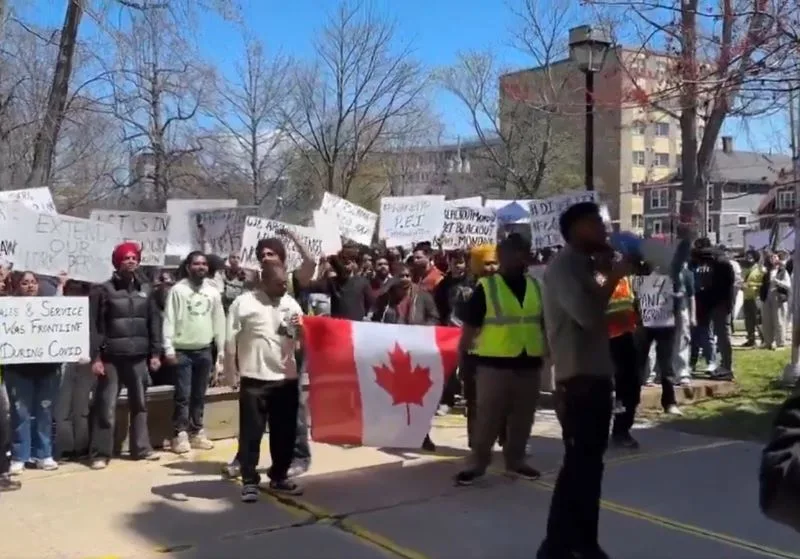Canada is currently facing significant protests as approximately 70,000 international students are voicing their concerns over new immigration policies introduced by the federal government under Prime Minister Justin Trudeau. These protests, spreading across various provinces like Prince Edward Island, Ontario, Manitoba, and British Columbia, reveal a deep sense of unrest among foreign students.
The discontent primarily arises from a series of policy changes that have dramatically impacted the lives of international students. In 2021, Canada removed the Post-Graduation Work Permit (PGWP) program, which previously allowed students to gain valuable work experience after completing their studies. Last year, the government further tightened immigration rules by introducing a two-year cap on international student visas, complicating the path for students to settle and work in the country.
These changes have had a profound impact on the international student population, who now make up 37% of all study visa holders in Canada. The strain on housing, employment, and other essential services is evident, and with the cap on student visas expected to reduce the intake of foreign students by 35%, the situation is becoming increasingly challenging. The government’s recent decision in June to prevent foreign nationals from applying for a PGWP at the border has only added to the difficulties. Many graduates fear deportation when their work permits expire, further exacerbating the already dire circumstances.
Mehakdeep Singh, a former international student now facing deportation, expressed his frustration, highlighting the struggle many are facing: “I spent six years taking risks to come to Canada. I studied, worked, paid taxes, and earned enough Comprehensive Ranking System (CRS) points, but the government has taken advantage of us.” The situation is indeed alarming, with new provincial policies reducing permanent residency nominations by 25%, making it even harder for international students to stay in the country. The Naujawan Support Network, a student advocacy group, has been actively voicing these concerns, emphasizing the urgency of the issue for countless students.
